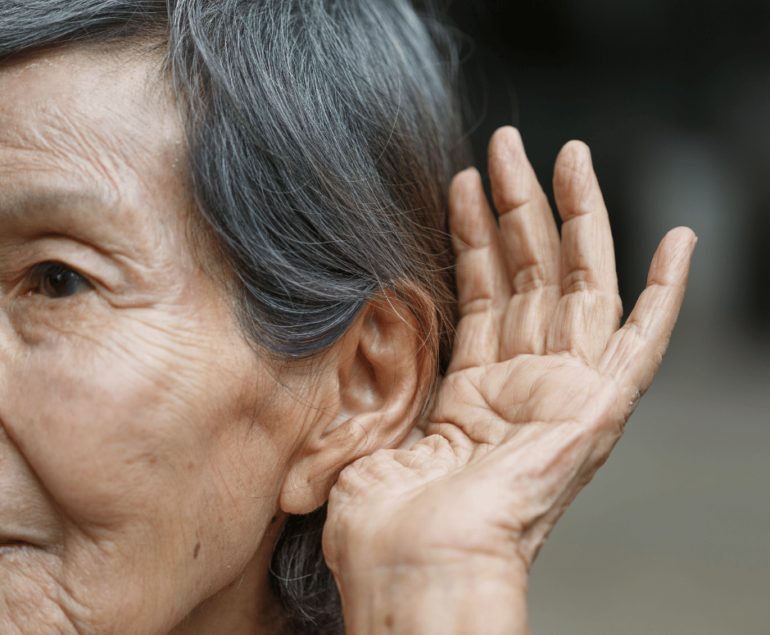As a practicing ENT surgeon, I understand the importance of exploring various treatment options to provide comprehensive care to my patients. While conventional medicine plays a crucial role in managing ear, nose, and throat (ENT) conditions, there is growing interest in alternative and complementary therapies. In this blog post, we will delve into the world of alternative and complementary therapies for ENT conditions, exploring their effectiveness, benefits, and considerations.
Understanding Alternative Therapies for ENT Conditions
Alternative therapies encompass a wide range of practices that fall outside the realm of conventional medicine. These may include acupuncture, herbal medicine, chiropractic care, homeopathy, and more. Patients often turn to alternative therapies seeking natural, non-invasive approaches to address their health concerns. While some alternative therapies lack scientific evidence, others have shown promising results in managing certain ENT conditions.
Complementary Therapies Explained
Complementary therapies are used alongside conventional medical treatments to enhance their effectiveness or alleviate side effects. These therapies may include dietary supplements, massage therapy, yoga, and meditation. The integration of complementary therapies into ENT care aims to promote holistic well-being and improve patient outcomes.
Acupuncture: A Popular Alternative Therapy
Acupuncture, originating from traditional Chinese medicine, involves the insertion of thin needles into specific points on the body to stimulate energy flow. In the context of ENT conditions, acupuncture has been found to relieve symptoms of chronic sinusitis, tinnitus, and vertigo. While more research is needed, many patients report significant improvements in their symptoms after acupuncture sessions.
Herbal Medicine and Supplements
Herbal medicine utilizes plant extracts and botanicals to address various health issues. For ENT conditions, herbs like echinacea, ginger, and peppermint may offer relief from congestion, sore throat, and inflammation. Additionally, certain supplements such as vitamin C and zinc play a role in supporting immune function and promoting recovery from ENT infections.
Chiropractic Care for ENT Issues
Chiropractic care focuses on the alignment of the spine and musculoskeletal system to improve overall health and well-being. While primarily known for treating back pain and neck injuries, chiropractic adjustments may also benefit patients with temporomandibular joint (TMJ) dysfunction and cervical spine issues contributing to ENT symptoms.
Homeopathy: Understanding its Role
Homeopathy operates on the principle of “like cures like,” using highly diluted substances to stimulate the body’s natural healing processes. In the context of ENT conditions, homeopathic remedies are tailored to individual symptoms and may offer relief from allergies, sinusitis, and otitis media. While controversial, some patients find homeopathy to be a valuable adjunct to conventional treatments.
Nutritional Therapy for ENT Health
Proper nutrition plays a crucial role in supporting overall health, including the function of the ears, nose, and throat. Foods rich in antioxidants, omega-3 fatty acids, and vitamin A are particularly beneficial for maintaining mucosal integrity and immune function. Nutritionists may work with ENT patients to develop personalized dietary plans to optimize healing and prevent recurrence of conditions.
Mind-Body Therapies
Mind-body therapies, such as meditation, yoga, and tai chi, emphasize the connection between mental and physical health. These practices promote relaxation, stress reduction, and mindfulness, which can indirectly benefit ENT conditions by lowering inflammation, improving immune function, and enhancing overall well-being.
Aromatherapy for ENT Conditions
Aromatherapy involves the use of essential oils extracted from plants to promote healing and relaxation. Inhalation or topical application of essential oils like eucalyptus, lavender, and tea tree oil may help alleviate symptoms of nasal congestion, sinus pressure, and throat irritation. However, caution should be exercised when using essential oils, especially in sensitive individuals or children.
Biofeedback Techniques
Biofeedback utilizes technology to monitor and control physiological responses such as heart rate, muscle tension, and skin temperature. In the context of ENT conditions, biofeedback techniques can help patients gain awareness and control over involuntary processes like breathing and swallowing, potentially reducing symptoms of dysphagia, laryngopharyngeal reflux, and voice disorders.
Massage Therapy for ENT Wellness
Massage therapy involves the manipulation of soft tissues to promote relaxation, improve circulation, and relieve tension. For ENT patients, specific massage techniques targeting the neck, shoulders, and facial muscles can help alleviate pain, reduce swelling, and enhance lymphatic drainage, especially following surgery or during acute episodes of sinusitis or otitis media.
Energy Healing Modalities
Energy healing modalities, including Reiki, Qigong, and healing touch, focus on balancing the body’s energy fields to promote physical, emotional, and spiritual well-being. While the mechanisms underlying these practices are not fully understood, many patients report feelings of deep relaxation, stress relief, and improved vitality after energy healing sessions.
Clinical Evidence and Research
While anecdotal evidence and patient testimonials abound, rigorous scientific studies on alternative and complementary therapies for ENT conditions are still relatively scarce. However, there is growing interest in conducting well-designed clinical trials to evaluate the efficacy, safety, and cost-effectiveness of these therapies. Integrative medicine approaches that combine conventional treatments with evidence-based complementary therapies hold promise for optimizing patient care and improving quality of life.
Conclusion
Exploring alternative and complementary therapies for ENT conditions opens up new avenues for patient-centered care and holistic healing. While conventional medicine remains the cornerstone of ENT treatment, integrating evidence-based complementary therapies can offer additional benefits in symptom management, recovery, and overall well-being. As healthcare providers, it is essential to remain open-minded, informed, and collaborative in guiding patients towards safe and effective treatment options.
FAQs
- Are alternative therapies safe for ENT conditions?While many alternative therapies are generally safe when administered by trained practitioners, it’s essential to consult with your healthcare provider before trying any new treatment, especially if you have underlying health conditions or are taking medications.
- Can complementary therapies replace conventional medical treatments?Complementary therapies are meant to complement, not replace, conventional medical treatments. They can enhance the effectiveness of conventional therapies and support overall wellness but should be used in conjunction with professional medical advice.
- How can I find qualified practitioners of alternative therapies?Look for practitioners who are licensed, certified, or registered in their respective fields and have experience working with patients with ENT conditions. Ask for recommendations from trusted healthcare providers or seek referrals from friends and family.
- Are there any risks associated with herbal supplements?Some herbal supplements may interact with medications or cause adverse reactions, particularly if taken in high doses or for extended periods. It’s essential to discuss any supplements you’re considering with your healthcare provider to avoid potential complications.
- How do I know if a clinical trial on alternative therapies is reputable?Look for clinical trials registered on reputable platforms such as ClinicalTrials.gov and conducted by reputable institutions or research organizations. Pay attention to study design, sample size, duration, and outcome measures to assess the validity and reliability of the research findings.
About Author:
Dr. Vivek Kumar Pathak: Renowned ENT Surgeon, Senior Professor, and Founder.
Dr. Pathak, ENT surgeon at Kailash Hospital, Senior ENT Professor at Sharda University, and founder of Entegrity Care, brings expertise and innovation to healthcare. Discover the visionary behind Doxtreat Healthcare, shaping the future of ENT care.
Website www.drvivekpathak.com
Call +917838450942
WhatsApp +91 78384 50942
Book an appointment with Dr. Vivek kumar Pathak by filling the form.





